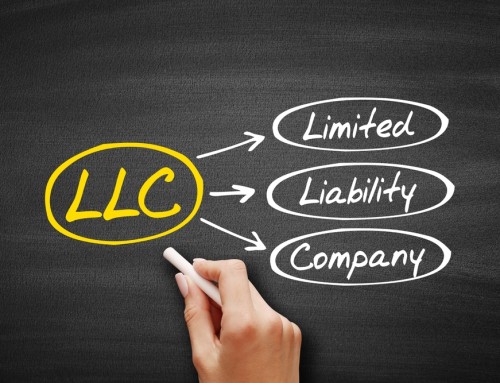For high-net-worth individuals, strategic estate planning is essential to preserving wealth and protecting assets from estate tax. With the current estate tax exemption at just over $13 million, many individuals and families risk seeing a significant portion of their estates go to taxes if they don’t implement proactive planning techniques. Below, we’ll explore key strategies that can help reduce or eliminate estate tax burdens while securing your legacy.
What is the Estate Tax Exemption, and Why Does it Matter?
The estate tax exemption represents the amount that individuals can pass to their heirs without incurring estate tax. Currently, this threshold is over $13 million per person, meaning that, in most cases, an estate valued below this amount won’t face estate tax. However, if your net worth exceeds this threshold, proactive planning can help you avoid millions in potential taxes, ensuring that more of your wealth benefits your family rather than going to taxes.
Estate planning methods, such as irrevocable trusts, family limited partnerships, and irrevocable life insurance trusts, allow you to take advantage of the tax code in ways that safeguard your assets. Let's break down how each of these strategies works and how they might be beneficial for your estate.
Utilizing Irrevocable Trusts to Reduce Your Taxable Estate
Irrevocable trusts are a powerful tool for high-net-worth individuals looking to minimize estate tax. When assets are placed in an irrevocable trust, they are removed from your estate, effectively reducing the overall taxable amount. Unlike a revocable trust, which allows changes or dissolution, an irrevocable trust cannot be altered once established. This permanence offers distinct tax advantages.
In addition to reducing your estate’s taxable value, irrevocable trusts provide the added benefit of creditor protection. Because assets in the trust are no longer owned by you personally, they are generally shielded from creditors. This structure is especially useful for individuals with significant wealth who want to protect their assets from potential future liabilities while also reducing estate tax obligations.
Understanding Family Limited Partnerships (FLPs) for Wealth Transfer
A family limited partnership (FLP) is another valuable tool for those looking to transfer wealth efficiently. An FLP allows you to transfer assets out of your estate while retaining control over them. Here’s how it works:
- General Partner and Limited Partners: An FLP typically involves creating a general partner LLC, which is responsible for managing the partnership’s assets. Limited partners, often family members or irrevocable trusts, hold shares in the FLP but do not have control over the assets.
- Control and Liability Management: As the general partner, you retain control of the assets without direct ownership, which helps reduce your estate’s taxable value. Moreover, by creating an LLC as the general partner, you protect your personal assets from partnership liabilities. This structure is ideal for high-net-worth individuals who want to maintain control of their assets while effectively transferring wealth to future generations.
FLPs can be a sophisticated way to lower estate taxes, but it’s important to establish a clear partnership agreement and keep meticulous records to ensure compliance and avoid disputes.
Leveraging Irrevocable Life Insurance Trusts (ILITs) for Estate Tax Savings
Life insurance policies can significantly impact estate tax obligations. Typically, when the owner of a life insurance policy dies, the policy’s proceeds are included in the owner’s gross estate, potentially pushing the estate’s value over the taxable threshold. However, with an Irrevocable Life Insurance Trust (ILIT), you can exclude life insurance proceeds from your taxable estate.
When setting up an ILIT, the trust becomes the legal owner of your life insurance policy. Here’s why this matters:
- Tax-Free Proceeds: Upon your death, the ILIT receives the life insurance payout. Since the trust, not you, owns the policy, the proceeds aren’t considered part of your estate and, therefore, are exempt from estate tax.
- Beneficiary Support: The ILIT ensures that life insurance proceeds are distributed according to your wishes, providing financial support to beneficiaries without being subject to estate taxes.
For high-net-worth individuals whose estates exceed the current exemption threshold, an ILIT can be an effective method for keeping life insurance proceeds intact for heirs. Establishing an ILIT requires meticulous planning and adherence to specific legal requirements, but it can yield substantial tax savings.
Common Questions About Estate Tax Planning
How do I know which estate planning strategy is right for me?
Choosing the best strategy depends on your specific circumstances, such as your net worth, family structure, and long-term goals. Consulting with an experienced estate planning attorney can help you evaluate your options and create a plan that aligns with your needs.
Is it necessary to set up an irrevocable trust if I already have a revocable trust?
While a revocable trust is a valuable tool for avoiding probate and maintaining privacy, it doesn’t reduce estate tax. An irrevocable trust, on the other hand, removes assets from your taxable estate, making it ideal for tax planning. Each type of trust serves a unique purpose, and using both strategically can help maximize your estate planning efforts.
What are the risks of setting up a family limited partnership?
Family limited partnerships offer substantial benefits, but they also come with responsibilities. As a general partner, you must maintain control over the partnership’s assets, keep accurate records, and follow all legal requirements to ensure compliance. FLPs are often scrutinized by the IRS, so working with a knowledgeable attorney can help you avoid common pitfalls.
Can I modify my estate planning strategy if tax laws change?
Tax laws frequently change, and high-net-worth individuals should review their estate plans regularly to adapt to these shifts. While some tools, like irrevocable trusts, are challenging to alter, others can be adjusted. Regular consultations with an estate planning attorney ensure your plan remains effective over time.
Start Planning Your Estate Today
Estate tax planning is essential for anyone with significant wealth who wants to protect their assets for future generations. At KEYTLaw in Scottsdale, Arizona, we specialize in helping high-net-worth individuals create tailored estate planning strategies to minimize tax obligations and safeguard family wealth.
From irrevocable trusts and family limited partnerships to irrevocable life insurance trusts, we’ll work with you to determine the best solutions for your unique needs. Protect your legacy and give your family the gift of financial security with a proactive estate plan.
Book a free consultation with us today to discuss your options and secure your financial future. keytlaw.com






